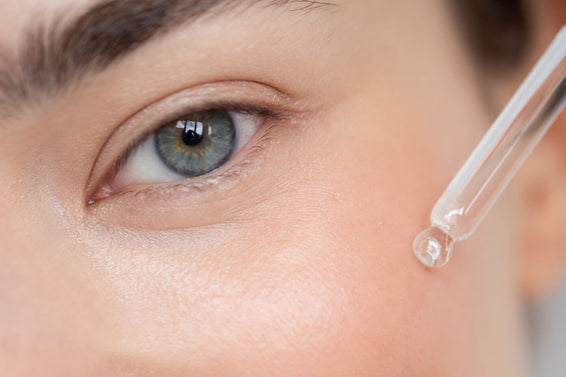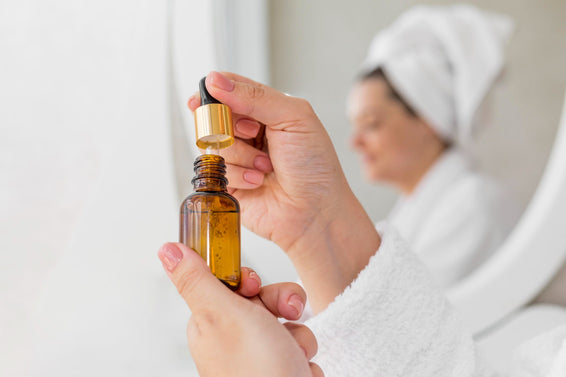Dry Skin
Dry skin is characterized by having rough and tight textures that look dull. What you can do to keep your skin smooth and soft is to build the right skin care routine. Read on to find out more about the right products and remedies for dry skin from our guide to skin care routines.
Among all skin types, dry skin has the most issues with the ever-changing weather. It is easily affected by the temperature and humidity. These are factors that you can’t control. Here, you’ll know more about dry skin, the factors that can cause it, and some remedies that soothe your skin for a softer and smoother texture. Restore the health and radiance of your skin with these tips!

Causes of Dry Skin
Having dry skin can be a life-long experience or for just a short period. There are a number of reasons you could have dry skin. Your skin might lack in moisture and hydration. Moisture is the water content found on the surface of the skin while hydration is the water in the deeper layers. When the skin lacks hydration, it loses its ability to retain moisture on the surface, which leads to dryness.
The products you use on skin can be the cause of dry skin as well. Harsh cleansers that contain sulfate or salicylic acid can dry skin. Using them often can remove the necessary moisture on the skin. Soaps, detergents, and alcohols are some products you need to avoid as well. Most importantly, when you don’t drink enough water, you’re at risk of having dry skin. Make sure to always keep hydrated and to eat fruits and vegetables.
Lack of humidity can make skin feel very dry. This happens especially during winter. To avoid dry skin, use a personal humidifier that helps moisturize skin all day long. This handy device has a lot of benefits for users.
READ MORE: Keep It Stress-Free With A Personal Diffuser
Symptoms of Dry Skin
There are many symptoms that tell you that your skin is drier than usual. Knowing about these symptoms early is important so you can soothe the dryness away.
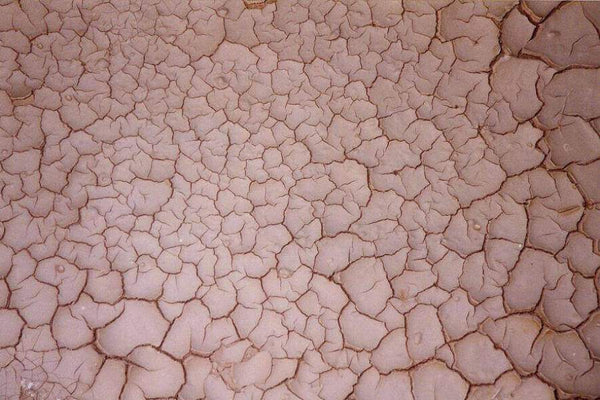
- Itchiness and Irritation - Using harsh products such as detergents can cause itchiness and irritation on the dry skin. This is because the protective layer of the skin lifts up. It triggers the sensitivity of your skin as well. These symptoms are often accompanied by redness, and in worse cases, with rashes.
- Flaking - Ever wonder why the skin peels right after hand washing clothes? The detergent you use might not be good for your skin. Flaking is a sign that there’s not enough moisture on the skin. The outermost layer of the skin peels off and it might cause discomfort when it develops into cracking.
- Dry Patches - Dry patches show up as scaly areas of the skin. It can happen anywhere in the body. However, the most common places that it shows up are at areas often exposed to the sun such as arms, neck, legs, and face. Dry patches feel rough to the touch as well.
- Ashy Skin - Ashy skin is a symptom unique to dry skin. When there is not enough moisture on the skin, the surface experiences a chalky or flaky appearance. It happens to anyone and it might have a whitish or grayish color.
- Rough Skin - Rough skin is easy to tell just by its texture. Dry skin feels rough to the touch. It happens due to the layers of the skin peeling off. It might be due to small flaking that happens as well.
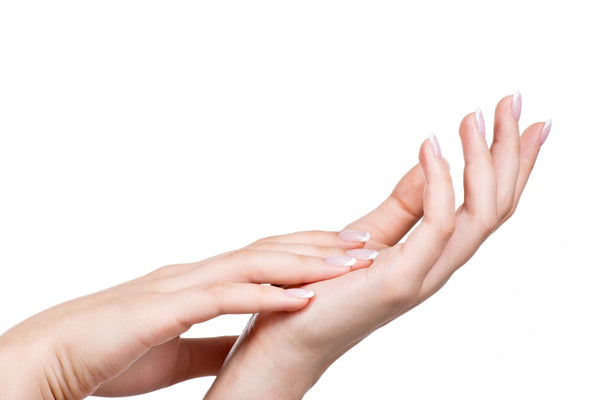
When to See a Doctor
Dry skin is common especially during winter. If left untreated, it can get worse and cause discomfort. When you experience cracking, bleeding, and spreading dry patches, it’s best that you see a doctor. These can be characteristics of a skin concern that might need special treatment.
Dandruff can also appear in other areas of the body due to dry skin. Flaking usually occurs on elbows, knees, back, neck, or scalp. If you experience these signs, consult a doctor immediately. Find more information about dandruff here:
READ MORE: Dandruff
Products for Dry Skin
There are products made just to address the needs of dry skin. Soaps, detergents, and alcohols are just some of the products that you need to avoid. There are alternatives or gentler types of these products you can use. The following are the products you need for dry skin.

Non-Drying Cleansers
Heavy-Duty Moisturizers
Moisturizing Sunscreens
Creams
Essential Oils
READ MORE: Essential Oils Guide
Remedies for Dry Skin
Dry skin can last for a long time. However, this does not mean that you can’t have a soft and silky smooth skin. There are various ways to soothe dry skin. Discover these methods and when to use them.
 Treatment Products
Treatment Products
For worse cases of dryness, look for treatment products. These medications often have soothing and anti-inflammatory effects that can relieve flaking, cracking, irritation, and other signs of dry skin that can cause discomfort. Treatment products contain chemicals or ingredients that have therapeutic effects. You can get them from drugstores without a prescription.
Home Remedies for Dry Skin
Homemade recipes are easy to do and the ingredients are readily available. You often find these ingredients at home. By making your homemade remedy, you can create a product according to your own preference including the scent, the color, and the texture.
Home remedies range from a blend of essential oils, masks, clays, bath products, and deep-conditioning recipes that soften the skin. Home remedies for dry skin use food and oils that have high levels of essential fatty acids such as mayonnaise, avocado, honey, yogurt, and body butters.
Skin Care Products
READ MORE: Skin Care Products
Easy Tips to Prevent Dry Skin
You can stop dry skin before it gets worse. There are easy methods you can do to soften the skin. Having dry skin is not an issue. As long as you always moisturize the skin often, you can keep its smooth texture easily. Here are some easy tips you can do to retain the skin’s suppleness.
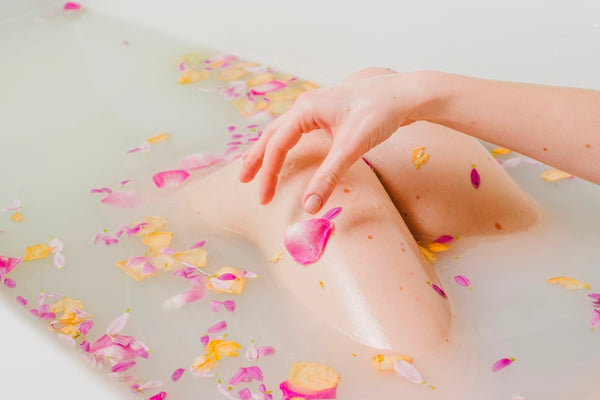
- Moisturize skin often - Dry skin needs a lot of moisture since the skin does not produce enough. Even when you use heavy-duty moisturizers, you should still apply often to prevent ashy or chalky textures.
- Do not use hot water in baths - Hot water can strip the skin of its moisture. When taking hot baths, the skin feels tighter after. Hot water removes necessary moisture from the skin and this causes itching and development of rashes. Stick to using warm water
- Apply moisturizing sunscreen - Sunscreen is one of the most important products you should never forget to apply on skin. Remember to apply moisturizing sunscreen often even during cloudy days.
- Use a humidifier during winter - The lower the temperature is, the less humidity there is in the atmosphere. To prevent drying and flaking of the skin, use a humidifier to help provide moisture for the skin.
- Eat healthy food - The primary source of nourishment of the skin comes from the food that you eat. There are food and beverages that can cause dry skin as well. Coffee and alcohol are dehydrating beverages that can make your skin dry. When drinking alcohol or coffee, make sure to drink lots of water after. Fruits and vegetables are good for keeping the skin soft too. They improve its ability to provide moisture and prevent dryness.
- Use gentle cleansers - Avoid using soap especially for washing the face. For hands, gel cleansers are best used. Alcohols and detergents are not good for dry skin. Limit the number of times that you wash or cleanse your skin since it can cause dryness. Castor oil is a good face cleanser that does not dry the skin. Discover more uses of castor oil for dry skin.
READ MORE: Castor Oil
Whether you have dry skin or normal skin, you can still get soft and radiant skin by using the right products and methods. Get to know your skin, what it needs, and how it reacts to various products. It helps that you understand how your skin works.


 Treatment Products
Treatment Products




